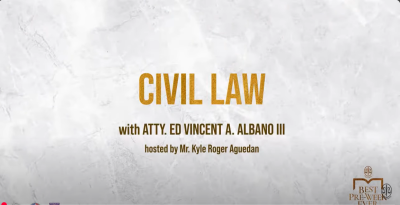Course description
Civil law is a comprehensive legal system that governs the rights and responsibilities of individuals, organizations, and institutions in their private relationships with each other. It focuses on resolving disputes and providing remedies for private wrongs or injuries, often through compensation, enforcement of contracts, or specific actions. The primary aim of civil law is to ensure justice and fairness in everyday transactions and personal affairs.
Here is a detailed description of civil law:
1. Core Areas of Civil Law:
Civil law covers various aspects of personal and business relationships. The main areas within civil law include:
-
Contract Law: This governs agreements between two or more parties, ensuring that promises made are legally binding and providing remedies in case of a breach. Examples include employment contracts, service agreements, and sales contracts.
-
Tort Law: This area deals with civil wrongs, such as negligence, defamation, and nuisance, that cause harm to individuals or their property. The law provides compensation or other remedies to victims of these wrongs.
-
Property Law: Property law addresses issues relating to the ownership, use, and transfer of property, whether real property (land and buildings) or personal property (movable goods and assets).
-
Family Law: This covers legal matters related to family relationships, such as marriage, divorce, child custody, adoption, and inheritance.
-
Inheritance Law: This deals with the distribution of a deceased person's estate and ensures that their wishes, as expressed in a will or by law, are honored.
-
Equity and Trusts: This area governs the use and administration of property held by one party for the benefit of another, such as in trust arrangements or equitable remedies when strict legal rules would lead to unfair outcomes.
2. Key Principles of Civil Law:
The civil law system is based on several guiding principles:
-
Private Rights: Civil law protects individual and organizational rights, including personal freedom, property rights, and the right to make contracts.
-
Responsibility and Accountability: Individuals and entities are responsible for their actions and may be required to compensate others for harm or loss caused by negligence or unlawful conduct.
-
Dispute Resolution: Civil law provides mechanisms for resolving disputes between parties, including litigation, arbitration, and mediation.
-
Compensation and Remedies: The primary goal in civil cases is to restore the injured party to the position they would have been in had the wrongful act not occurred. This may involve monetary compensation or specific performance (forcing the party to fulfill a contract or obligation).
3. Civil vs. Criminal Law:
One key distinction between civil law and criminal law is the focus of each system. Civil law addresses private disputes between individuals or organizations, while criminal law deals with actions considered offenses against the state or society, such as theft, assault, or murder. In criminal law, the government prosecutes the offender, and penalties may include imprisonment, fines, or community service.
In civil law cases, the injured party (the plaintiff) typically brings the case against the alleged wrongdoer (the defendant). Civil cases do not involve imprisonment but may result in monetary awards (damages) or orders to perform or refrain from certain actions.
4. The Civil Law Process:
-
Filing a Claim: To initiate a civil case, the aggrieved party files a complaint or claim, outlining the issue and the remedy sought.
-
Defendant's Response: The defendant may file a response to the claim, denying or challenging the allegations.
-
Discovery: Both parties exchange information and evidence relevant to the case.
-
Trial: If the dispute cannot be resolved through settlement or alternative methods like mediation, it may go to trial, where both parties present their case before a judge (or jury, depending on the jurisdiction).
-
Judgment and Enforcement: After considering the evidence, the judge issues a decision. If the defendant is found liable, they may be ordered to pay damages or take specific actions. If the defendant does not comply, the court can enforce the judgment.
5. Legal Systems and Civil Law:
Civil law is most prominently practiced in countries that follow the civil law system (also known as the code-based legal system), which traces its origins to Roman law and is most prevalent in Europe and Latin America. Key characteristics of the civil law system include:
-
Codification: Civil law systems rely on written codes and statutes, which clearly outline the rules governing different aspects of law. These codes serve as the primary source of law, with judges interpreting the codes in individual cases.
-
Judicial Precedent: Unlike common law systems (such as those in the UK or the US), where past judicial decisions serve as binding precedent, civil law systems emphasize the application of codified statutes and legal principles over case law.
-
Role of Judges: In civil law systems, judges typically have a more investigative role, guiding the case and ensuring the application of law. They focus less on past rulings and more on the written statutes.
6. Civil Law in Common Law Countries:
While common law systems (such as in the UK, the US, and many other countries) are largely based on judicial decisions and precedents, civil law principles are still influential in these jurisdictions, particularly in matters such as contract law, property law, and torts. Many common law jurisdictions have also incorporated civil law elements into their legal frameworks, especially through codified statutes.
Conclusion:
Civil law is a fundamental branch of law that ensures fairness, justice, and order in society by regulating the relationships between private individuals, businesses, and organizations. It provides a structured approach to resolving disputes, upholding personal rights, and ensuring accountability for wrongful acts. Whether through compensation, enforcement of agreements, or other remedies, civil law aims to balance the rights and responsibilities of individuals and organizations.






